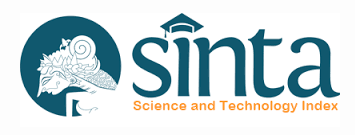TANTANGAN DAKWAH DALAM PERSPEKTIF KERUKUNAN ANTAR UMAT BERAGAMA
Abstract
Abstract; Negara Indonesia adalah termasuk negara yang penduduknya majemuk dalam suku, adat, budaya dan agama. Islam diyakini pemeluknya sebagai agama sempurna. Ajarannya mencakup semua tuntunan kehidupan manusia di muka bumi agar selamat dan bahagia menuju kehidupan akhirat yang lebih kekal dan abadi. Berkaitan dengan relasi antar manusia. Agama adalah jalan yang berbeda-beda menuju pada tujuan (the ultimate) yang sama. Pluralisme adalah bentuk kelembagaan dimana penerimaan terhadap keragaman melingkupi masyarakat tertentu atau dunia secara keseluruhan. Maknanya lebih dari sekedar toleransi moral atau konksistensi pasif. Tolernasi adalah persoalan kebiasaan dan perasaan pribadi, sementara koeksitensi adalah semata-mata penerimaan terhadap pihak lain, yang tidak melampaui ketiadaan konflik. Pluralisme, di satu sisi, mensyaratkan ukuran-ukuran kelembagaan dan legal yang melindungi dan mensyahkan kesetaraan dan mengembangkan rasa persaudaraan di antara manusia sebagai pribadi atau kelompok, baik ukuran-ukuran itu bersifat bawaan ataupun perolehan. Tidak ada agama yang dapat menghindari dakwah jika ia memiliki suatu kekuatan intelektual Menolak dakwah berarti menolak kebutuhan untuk mendapatkan persetujuan orang lain terhadap apa yang diklaim sebagai kebenaran agama. Interpretasi yang semacam ini bisa melahirkan.sikap-sikap beragama yang toleran dalam mewujudkan kerukunan antar agama dan perkembangan multikulturalisme. Di dalam masyarakat multikultural, keanekaragaman dan budaya menjadi modal sosial yang paling berharga bagi terciptanya harmonisasi sosial. Karena itulah, di dalam multikulturalisme, semua orang memiliki hak untuk diperlakukan sama dihadapan hukum. Kata Kunci: Tantangan, Dakwah, Perspektif, Kerukunan Indonesia is a country where its people are compound in a tribal population, customs, culture and religion. Islam is believed as a perfect religion for its followers. Its teachings include of all the guidance of human life on earth in order to safely and happily head to an afterlife which is eternal and immutable. In accordance with human relations, religion is different paths toward to the same destination (the ultimate). Pluralism is an institutional form in which the acceptance of diversity encompasses of a particular community or the world as a whole. Its meaning is more than just a moral tolerance or passive consistence. Tolerance is a matter of habit and personal feelings, while co-existence is merely the acceptance of the other people, which does not exceed the conflict. On the other hands, Pluralism requires an institutional and legal measures framework to protect and validate equality and develop a sense of brotherhood among people as individuals or groups, whether such measures are innate or acquisition. No one religion can avoid Dakwah, if it has an intellectual force to refuse Dakwah means it resists the need to obtain the approval of others to what is claimed as religious truth. This interpretation can establish tolerant religious attitudes in creating harmony among religions and the development of multiculturalism. In a multicultural society, cultural diversity and social capital are the most valuable things for the creation of social harmony. Therefore, everyone has the right to be treated equally before the law in multiculturalism. Keywords: Challenge, Da’wa, Perspective, Harmony
How to Cite
Setiawati, N. (1). TANTANGAN DAKWAH DALAM PERSPEKTIF KERUKUNAN ANTAR UMAT BERAGAMA. Jurnal Dakwah Tabligh, 13(2), 259-267. https://doi.org/10.24252/jdt.v13i2.308
Issue
Section
Vol. 13 No. 2 Desember 2012
Once an article was published in the journal, the author(s) are:
granted to the journal right licensed under Creative Commons License Attribution that allows others to share the work with an acknowledgment of the work's authorship. permitted to publish their work online in third parties as it can lead to wider dissemination of the work. continue to be the copyright owner and allow the journal to publish the article with the CC BY license receiving a DOI (Digital Object Identifier) of the work.





